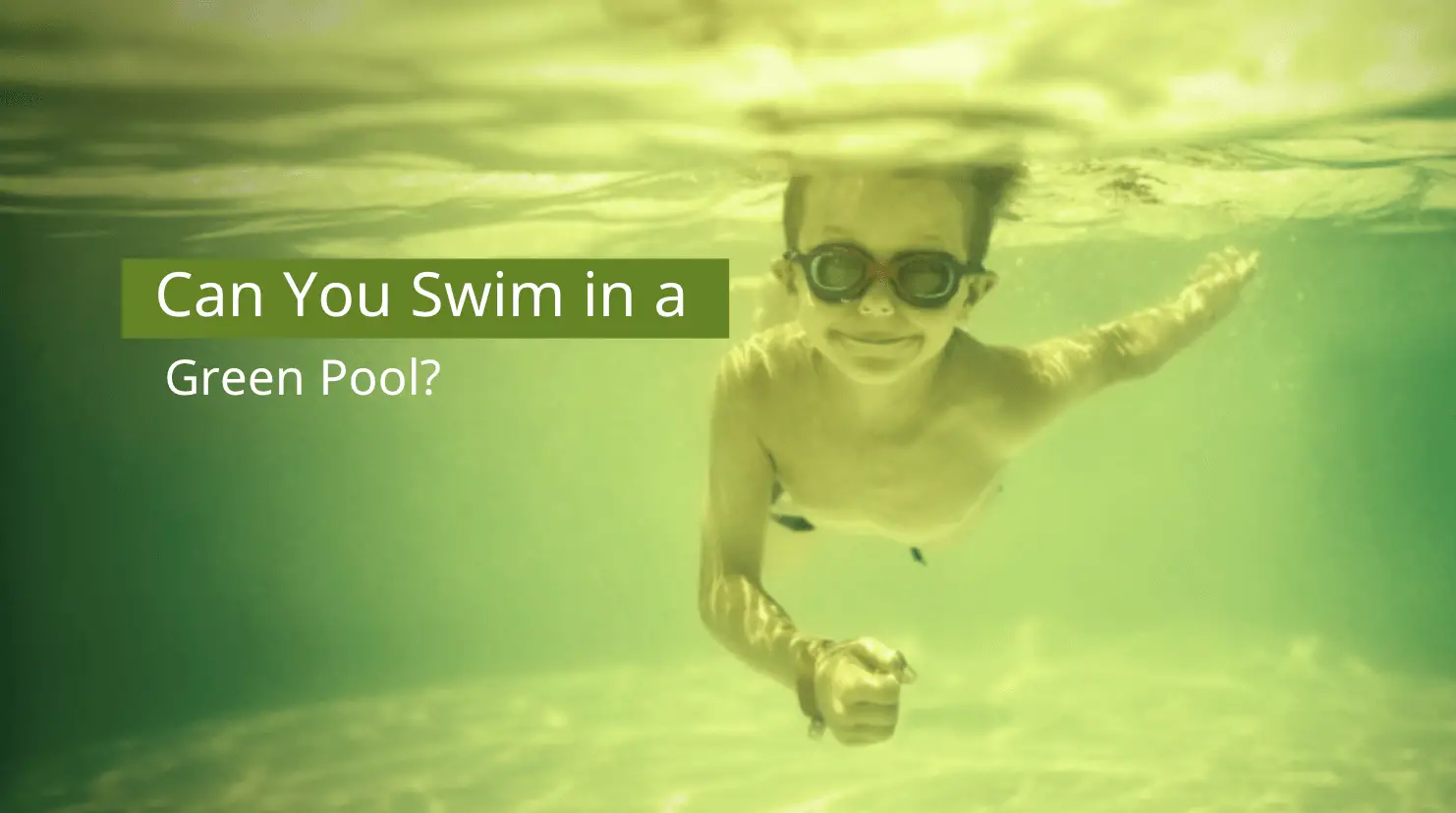
You can swim in a green pool, but there are a few things you should keep in mind. First, green pool water is usually caused by algae, which can be harmful if you ingest it. Second, the chlorine level in a green pool may be lower than usual, so you may want to test the water before getting in.
In this post, we describe what happens when you swim in a green pool, and what you can do to prevent it from happening.
How Green Is It?
Green pools are usually caused by algae. The algae are usually harmless to humans, but if you swim in one, you can ingest it. Algae is very tiny, so it can get into your mouth. It can also enter your eyes, ears, nose, and throat.
Depending on the shade of green the water is, you can swim in the pool.
Oxidized Metals
This usually happens due to exposure to water and chlorine. It’s a natural process that occurs to all metals, but it causes problems when you swim in a pool that has been chlorinated.
The main problem with oxidized metals is that they cause a bad smell in the pool. They can also be poisonous. What happens is that the chlorine reacts with the metals to form chloramines.
This could be the case with light green pool water. The water in your pool may turn green but it won’t be cloudy because of the oxidation of the metals. You may read also Can Cats Swim in Pools
pH Level
There are two types of pH levels. When the water in the pool is acidic, it’s too hard. The metal salts that are present in the water become unstable.
This makes the metals separate and the minerals that are dissolved in the pool water settle out and collect on the bottom of the pool. Chlorine will then react with the metals to form chloramines.
This may happen in pools with low pH levels. The other type of pool is alkaline. In this case, the water is too soft. It will cause the metal salts to dissolve and they will precipitate on the bottom of the pool.
Pollen
Pollen is a substance found in the air that causes allergies. Pollen can affect the skin, lungs, eyes, nose, sinuses, and stomach. People who live in rural areas are more likely to suffer from allergic symptoms.
The pollen counts are higher in the spring than in the summer. There are two types of pools. There are pools that are made of metals, and there are those made of stone. Both types can be very hazardous to your health.
The pollen is too small for your filter to handle. Over the course of a few days, the pollen can turn your pool water green or sickly yellow. You may read also the guide on What is a Variable-Speed Pool Pump
Cloudy and Green Pool Water
If your pool has been getting cloudy and green with algae, you should do the following. First, make sure that your pool has adequate levels of chlorine. You should check the chlorine levels every day.
You should have a full tank of chlorine in your pool. Also, you should add more chlorine every week. It is easy to make a mistake when you are using chlorine and you might think that you have enough, but it is best to keep on adding more.
The amount of chlorine in your pool will depend on the size of your pool and how much chlorine you put into it.
Conclusion
In conclusion, If you are wondering whether it is safe to swim in a pool with green water, the answer is yes. Swimming in a green pool can be dangerous because the water might not be clean.
The chlorine in the pool might not be strong enough to kill all the bacteria in the water. If you have any cuts or open wounds, you could get an infection from the bacteria. You should also avoid swallowing any pool water. You may check also Can You Put an Inground Pool in a Small Backyard
FAQs
Are green algae harmful to humans in swimming pools?
Green algae, which are a common sight in unmaintained swimming pools, aren’t harmful The health risk to humans can be caused by bacteria that feed on the algae. Humans can be exposed to green algae, which can lead to various skin problems.
Is it safe to swim in green pools?
There isn’t much that can be done to make the green go away if it’s due to the pollen. If there are no allergies to the pollen, it is safe to swim in a pool that has green water.
Can chlorine turn the pool green?
The levels of free chlorine might not be as high. Adding too much chlorine to the pool water can cause the metals to oxidize and turn the pool into a different shade of green. If you’re having trouble balancing chlorine in your pool, you can talk to a pool professional about other options.
Why does a pool turn green?
Algae growing in the water is the most common reason for the pool water to turn green. During the warmer months, algae can grow quickly, which is why it can surprise you in the middle of the night. A lack of chlorine in the water is the most common cause of this.
For the pool owners out there. If you can, try and get some extra chlorine before the storm hits and your power goes out. As hot as it gets without AC, no one wants to swim in a green pool. #Ian pic.twitter.com/EEertSnxJE
— Tropical Weather (@Wxmetro) September 26, 2022

Hi, This is Josh. I am a former competitive swimmer and current fitness enthusiast.
I created this site to share my love of swimming with the world!

